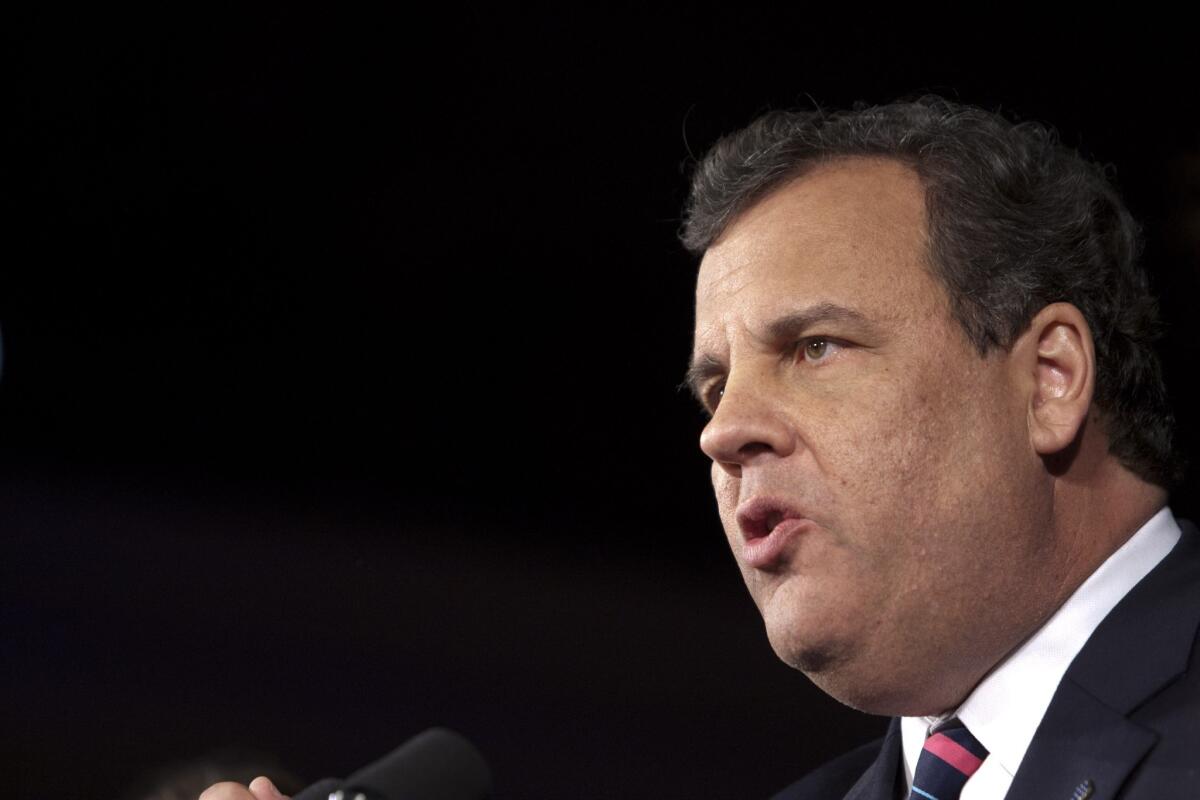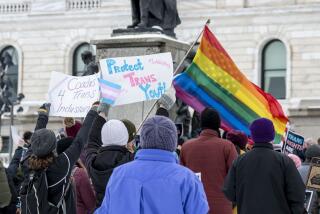New Jersey’s gay conversion therapy ban faces another test

A family who wants to send their 15-year-old son to counseling to curb his attraction to other males is suing New Jersey over the state’s ban on so-called gay conversion therapies for minors.
In August, New Jersey Gov. Chris Christie signed into law a bill in that outlaws the therapies, making the Garden State the second state to do so after California. The New Jersey law prevents any licensed therapist, psychologist, social worker or counselor from using the therapies on children under 18, citing health risks, such as depression and suicide, linked to the practice.
The new law was upheld in court Nov. 8 by U.S. District Court Judge Freda Wolfson after two therapists who wanted to provide the treatments sued.
Now, the same judge, and the same attorneys on each side, are headed to court again.
In this case, which also names Christie, a 15-year-old -- referred to in court documents as John Doe for privacy reasons -- and his parents want the teenager to undergo the therapies. They say the law is unfairly preventing him from getting the treatment he wants, according to court documents.
In the court complaint, the family alleges that the law violates their freedom of speech and free exercise of religion, as well as the parents’ fundamental rights.
The court complaint details the teenager’s history of expressing stereotypically feminine and homosexual behavior, which the family says led him to have suicidal thoughts starting around age 10. His “unwanted same-sex attraction” was confusing and conflicted with his Roman Catholic religious beliefs, the complaint said.
He tried to kill himself multiple times, the court documents say, and eventually asked to go to counseling for help.
After he began therapy to change his sexual orientation in 2011 in New York, the strength of his same-sex attractions dropped. On a scale of 1 to 10, the level of attraction dropped from an 8 to 3 and “every day would get a little better,” according to court documents.
Now, the 15-year-old wants to go to a licensed psychologist in New Jersey for further therapy -- referred to in court documents as Sexual Orientation Change Efforts -- but can’t because of the state’s ban.
“Because no licensed mental health professional in New Jersey can provide him with SOCE counseling, John Doe will substantially regress in the significant progress he has made with his current counselor,” the court complaint states.
“John Doe may also begin to have an enormous struggle and temptations that will make it difficult for him to continue to live consistently with his sincerely held religious beliefs and that this will only further add to the significant stress, anxiety and suicidal ideation that he suffered through prior to being able to receive SOCE counseling.”
In the earlier New Jersey case before Wolfson, she wrote in her opinion that the plaintiffs’ allegation that the ban infringes on 1st Amendment rights “runs counter to the long-standing principle that a state generally may enact laws rationally regulating professionals,” including those providing mental health services.
“I’m confident that will be her conclusion in this case as well,” Shannon Minter, the attorney for the defense, told the Los Angeles Times.
Wolfson ruled that the law did not violate the plaintiff’s free speech because nothing in the law “prevents licensed professionals from voicing their opinions on the appropriateness or efficacy of Sexual Orientation Change Efforts, either in public or private settings.”
However, Demetrios Stratis, the plaintiffs’ attorney in both cases, told The Times that the new case deals with the family’s ability to exercise freedom of religion and the fundamental rights of parents.
“It’s a different analysis that needs to be applied, and that’s why we think Doe needs to be adjudicated on its own,” Stratis said.
Though Stratis said that the personal nature of this case and the fact that it’s filed by a patient differentiates it from previous cases, Minter maintained that this case is much like other cases challenging the law, and therefore he believes the law should be upheld.
In addition to Wolfson’s ruling earlier this month, Minter mentioned a three-judge panel of the U.S. 9th Circuit Court of Appeals that upheld California’s law in August. The judges concluded that California’s ban did not violate the free speech rights of patients or professionals, or the fundamental rights of parents.
“The fundamental rights of parents do not include the right to choose a specific type of provider for a specific medical or mental health treatment that the state has reasonably deemed harmful,” the court concluded.
“I believe that exposing children to these health risks without clear evidence of benefits that outweigh these serious risks is not appropriate,” Christie, a Republican who is considered a presidential contender in 2016, said in August.
ALSO:
Police find body believed to be Florida man who fell from plane
Is there any place in Florida safe from sinkholes? Technically, no.
Veteran environmentalist who heads NRDC to step down next year
Twitter: @skarlamangla
soumya.karlamangla@latimes.com
More to Read
Sign up for Essential California
The most important California stories and recommendations in your inbox every morning.
You may occasionally receive promotional content from the Los Angeles Times.











